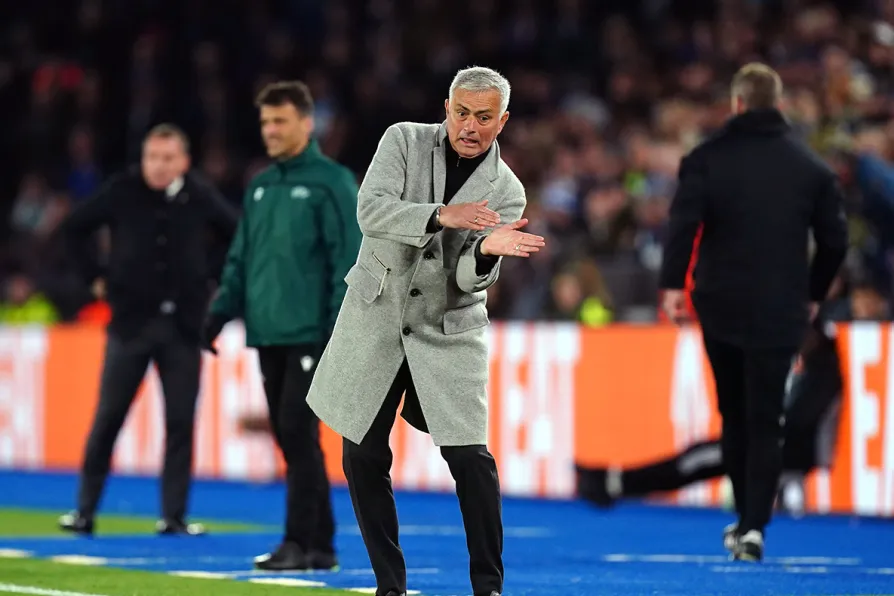The Special One - or should it be the Charismatic One?
LAYTH YOUSIF finds himself fascinated by Jose Mourinho’s theatrical demeanour and asks himself the questions: What is charisma? What defines it?

 Roma manager Jose Mourinho on the touchline during the Uefa Europa Conference League semi-final first-leg match against Leicester
Roma manager Jose Mourinho on the touchline during the Uefa Europa Conference League semi-final first-leg match against Leicester
JOSE MOURINHO’S frown eased imperceptibly, and his face lightened, as he contemplated the question.
The wrinkles on his tanned skin became less taut, and his brown eyes glinted in the glare of the TV cameras.
You knew he was teeing up another line, to add to his litany of box office quotes. But you were helplessly drawn into the theatre, his theatre, in what was his post-match press conference.
Similar stories

Klopp leads tributes as sports world mourns tragic loss of player and his brother

Explosive build-up to tonight’s game after ‘worst Man Utd goalkeeper’ comment












